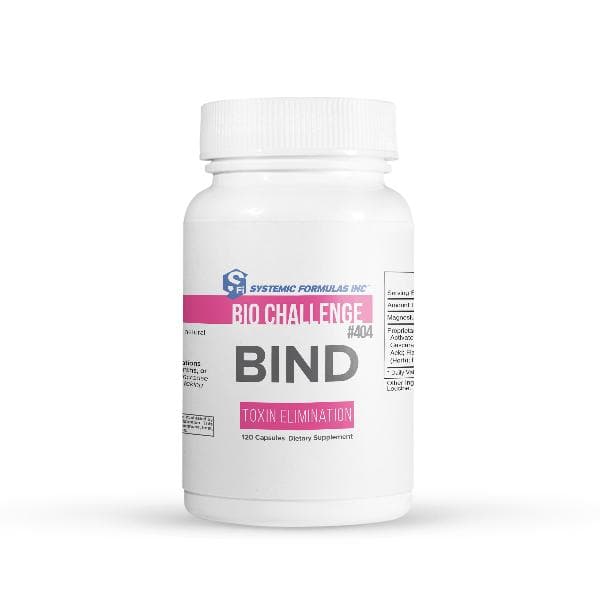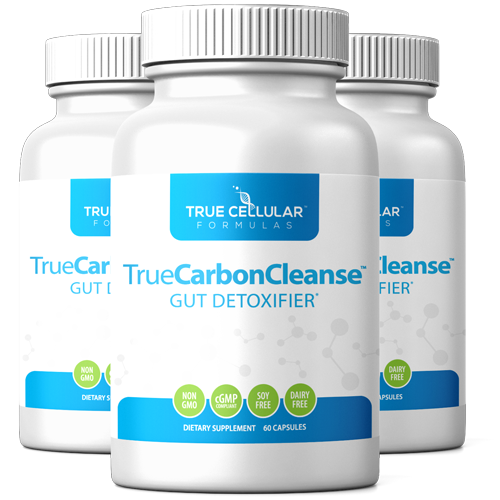
Top Dry January Tips: The Shocking Dangers of Alcohol
Share
It’s the start of the new year, and many people will participate in “Dry January,” In this article, we will define what Dry January means, its benefits, the dangers of alcohol, and the benefits of activated charcoal.
What is “Dry January?”
In its simplest terms, Dry January means you do not consume any alcoholic beverages for the entire month of January. The Dry January movement started in the U.K. in 2013 and quickly gained popularity worldwide. It is often practiced by those who want to give their bodies a break after a month (or 2) of holiday eating and drinking. According to the World Health Organization, alcohol abuse accounts for nearly 3.3 million deaths annually.
Here are a few potential health benefits of participating in Dry January and eliminating alcohol:
Potential for improved health.
Alcohol abuse has been shown to suppress the immune system, which could increase the risk of both bacterial and viral infections.[1] In addition, excessive alcohol consumption could lead to increased inflammation, cell death, or the uncontrolled growth and division of harmful cells in the body.[2]
It may help clear skin.
Excessive alcohol consumption can impact skin health, with poor skin being a possible early sign of alcohol abuse. Researchers note the increased risk of skin infections that consist of scaly, itchy patches or conditions where the skin is inflamed, scaly, and crusty.[3]
It may promote weight loss.
While preliminary studies find moderate alcohol consumption does not lead to weight gain, binge drinking has been associated with a greater risk of obesity and a large waist circumference (beer belly). In addition, drinking more than seven times per week was associated with an increased risk of weight gain and the development of obesity.[4]
It improved liver health.
According to the International Classification of Diseases, heavy alcohol consumption over time can play a key role in the progression of several forms of alcoholic liver diseases.[5] Alcohol is considered a major risk factor for poor liver health, and avoiding high alcohol consumption is strongly advised.
An unhealthy liver could lead to an increased risk of malnutrition in several ways:[5]
- Loss of appetite. This is due to a disruption in the function of leptin, a hormone that regulates the appetite. Excessive alcohol consumption could cause nausea, bloating, and fatigue, which can impact both the quality and quantity of food consumed.
- Malabsorption. Chronic alcohol absorption can hurt the gut microbiome, leading to the impaired absorption of nutrients.
Alcohol Consumption and Nutrient Deficiencies
The following nutrients might be impacted by excessive alcohol consumption:[5]
- Magnesium. Alcohol increases the urinary excretion of magnesium, depleting the amount stored in the body.
- Vitamin C. Malabsorption of vitamin C could be increased due to excessive alcohol intake.
- Zinc. Zinc is lost in the body due to increased urinary excretion.
- Carbohydrates. Glycogen stores in the liver could be depleted due to excessive alcohol intake.
- Protein and muscle. Moderate alcohol consumption has little effect on muscle, but consuming large doses can increase amounts lost via excretion.
- Vitamin A. Alcohol consumption is believed to inhibit the absorption of β-carotene, a carotenoid converted to vitamin A in the body.
- B vitamins. Chronic alcoholism can increase the risk of thiamine deficiency due to the decreased absorption of the vitamin in the gastrointestinal tract.
Alcohol and Activated Charcoal
Alcohol contains two toxins that can be harmful to the body: acetaldehyde and acetic acid.
- Acetaldehyde is a highly reactive molecule believed to increase the risk of inflammation and damage proteins, lipids, and DNA.[6] For some, acetaldehyde accumulating in the blood can cause headaches, nausea, vomiting, rapid heart rate, and other reactions.
- Acetic acid: acetaldehyde metabolizes to acetic acid in the body. It can cause lethargy and sedation. When mixed with acetaldehyde, some may experience depression, irritability, and euphoria.
Activated charcoal is an all-natural substance that can bind to toxins in the gut when consumed. Toxins are drawn to activated charcoal like a magnet, which prevents them from being absorbed by the body. (This process is known as adsorption.)
Activated charcoal can be consumed in pill or powder form and mixed with water. It is not digestible and is eliminated from the body via bowel movements. This can help ease the kidney's burden of attempting to remove harmful toxins.
Activated charcoal is on the World Health Organization Model List of Essential Medicines. It has been shown to adsorb many viruses and other substances, including the following:[7] [8]
- E. coli
- S. aureus
- Rotavirus
- ACE inhibitors
- Amphetamines
- Barbiturates
- Amotoxin
- Nicotine
- Ricin
- Tetracyclines
While alcohol contains toxins, activated charcoal is not used to treat alcohol poisoning or hangovers because the alcohol is rapidly absorbed from the gut (where alcohol is most effective.) However, activated charcoal does adsorb acetaldehyde. As a result, consuming activated charcoal within 1 hour before drinking alcoholic beverages might be an option.[8]
Dry January Success Tips
Here are a few ways to abstain from alcohol in January and beyond:
- Determine why you want to abstain from alcohol. Use this as motivation to stay focused when the urge to drink arises.
- Identify the reasons why you drink—some drink to ease stress, out of boredom, to fall asleep, etc. Determine why you drink and find other (healthier) ways to get the desired effect without alcohol.
- Try alcohol-free substitutes. Instead of alcoholic beverages, try a few mocktails instead. See our delicious mocktail recipes
- Let friends and family know your plans. Support from others can keep you accountable and focused on completing your goal.
- Resist invitations to have a drink. When offered a drink, politely decline with a firm “no thanks.”
- Keep track of how you feel. As time goes on, you may see positive changes in your physical or mental health. This can be a great motivator to continue abstaining.
- Have a plan of action for when Dry January ends. Will you continue past January? Limit drinking going forward?
Star Supplement: Activated Charcoal
Activated charcoal has been used for centuries to help remove toxins and improve overall health. Here are a few of the top activated charcoal supplements to choose from:
Bind - Toxin Elimination 
Bind-Toxin Elimination provides a unique, powerful form of activated charcoal, key botanicals, and powerful humates (fulvic and humic acids). Here are a few benefits:
- Absorbs 300 times its weight in toxins
- Does not interfere with the absorption of nutrients
- Helps reduce bloating
- Prevents reabsorption of candida, molds, and other biotoxins
- It contains probiotics to help support leaky gut
- Prevents flatulence by absorbing gases
- Binds to heavy metals
- Nutrient-rich contains over 70 plant-sourced trace minerals
TCF - TrueCarbonCleanse™ 
TrueCarbonCleanse™ contains a powerful blend of activated charcoal that supports the body’s natural ability to remove daily toxins, such as chemicals, heavy metals, air, water, plastics, etc.
This all-natural product prevents retoxification by attracting toxins released in the colon, preventing them from reabsorbing into the body. In addition to activated charcoal,TrueCarbonCleanse™ contains the following ingredients that help remove toxins:
- Apple fiber. It helps absorb and eliminate toxins.
- Magnesium oxide. It brings water to the intestines, helping to dilute toxins and flush them out of the body.
- Baozene® Baobab Fruit Powder. It assists in promoting a healthy gastrointestinal tract, improving its natural ability to eliminate toxins and the binding of heavy metals.
Patchouli and Charcoal Soap 
Activated charcoal can be used externally as well.Patchouli and Activated Charcoal Soap helps purify the body by drawing toxins out of the body via the skin.
Summary
January is the month for new beginnings, and that includes Dry January. Abstaining from alcohol can have many positive health benefits. Make your Try the tips listed here to make your Dry January quest a success.
References:
- Patricia E Molina 1, Kyle I Happel, Ping Zhang, (et al.). Focus on Alcohol and the immune system. Alcohol Res Health. 2010;33(1-2):97-108. [PMID: 23579940].https://pubmed.ncbi.nlm.nih.gov/23579940/
- Juan C Molina, Jesús D Guerrero-Morán, Claudia González-Espinosa. Alcohol: Immunomodulatory Effects and Cancer. Rev Invest Clin. 2023;75(3):129-142. doi: 10.24875/RIC.23000116. [PMID: 37441764].https://pubmed.ncbi.nlm.nih.gov/37441764/
- Natalia Kazakevich 1, Megan N Moody, Jennifer M Landau, (et al.). Alcohol and skin disorders: with a focus on psoriasis. Skin Therapy Lett. 2011 Apr;16(4):5-6. [PMID: 21611681].https://pubmed.ncbi.nlm.nih.gov/21611681/
- Gregory Traversy and Jean-Philippe Chaput. Alcohol Consumption and Obesity: An Update. Curr Obes Rep. 2015; 4(1): 122–130. Published online 2015 Jan 8. doi: 10.1007/s13679-014-0129-4. [PMID: 25741455].https://www.ncbi.nlm.nih.gov/pmc/articles/PMC4338356/
- Kamran U, Towey J, Khanna A, Chauhan A, Rajoriya N, Holt A. Nutrition in alcohol-related liver disease: Physiopathology and management. World J Gastroenterol. 2020 Jun 14;26(22):2916-2930. doi: 10.3748/wjg.v26.i22.2916. PMID: 32587439; [PMCID: PMC7304106]. https://www.ncbi.nlm.nih.gov/pmc/articles/PMC7304106/
- Rusyn I, Bataller R. Alcohol, and toxicity. J Hepatol. 2013 Aug;59(2):387-8. doi: 10.1016/j.jhep.2013.01.035. Epub 2013 Feb 4. PMID: 23391479; [PMCID: PMC3959903].https://www.ncbi.nlm.nih.gov/pmc/articles/PMC3959903/
- Zellner T, Prasa D, Färber E, Hoffmann-Walbeck P, Genser D, Eyer F. The Use of Activated Charcoal to Treat Intoxications. Dtsch Arztebl Int. 2019 May 3;116(18):311-317. doi: 10.3238/arztebl.2019.0311. PMID: 31219028; [PMCID: PMC6620762].https://www.ncbi.nlm.nih.gov/pmc/articles/PMC6620762/
- Burchacka E, Pstrowska K, Beran E, Fałtynowicz H, Chojnacka K, Kułażyński M. Antibacterial Agents Adsorbed on Active Carbon: A New Approach for S. aureus and E. coli Pathogen Elimination. Pathogens. 2021 Aug 22;10(8):1066. doi: 10.3390/pathogens10081066. PMID: 34451530; [PMCID: PMC8401764.] https://www.ncbi.nlm.nih.gov/pmc/articles/PMC8401764/
- North DS, Thompson JD, Peterson CD. Effect of activated charcoal on ethanol blood levels in dogs. Am J Hosp Pharm. 1981 Jun;38(6):864-6. [PMID: 7246560]. https://pubmed.ncbi.nlm.nih.gov/7246560/
